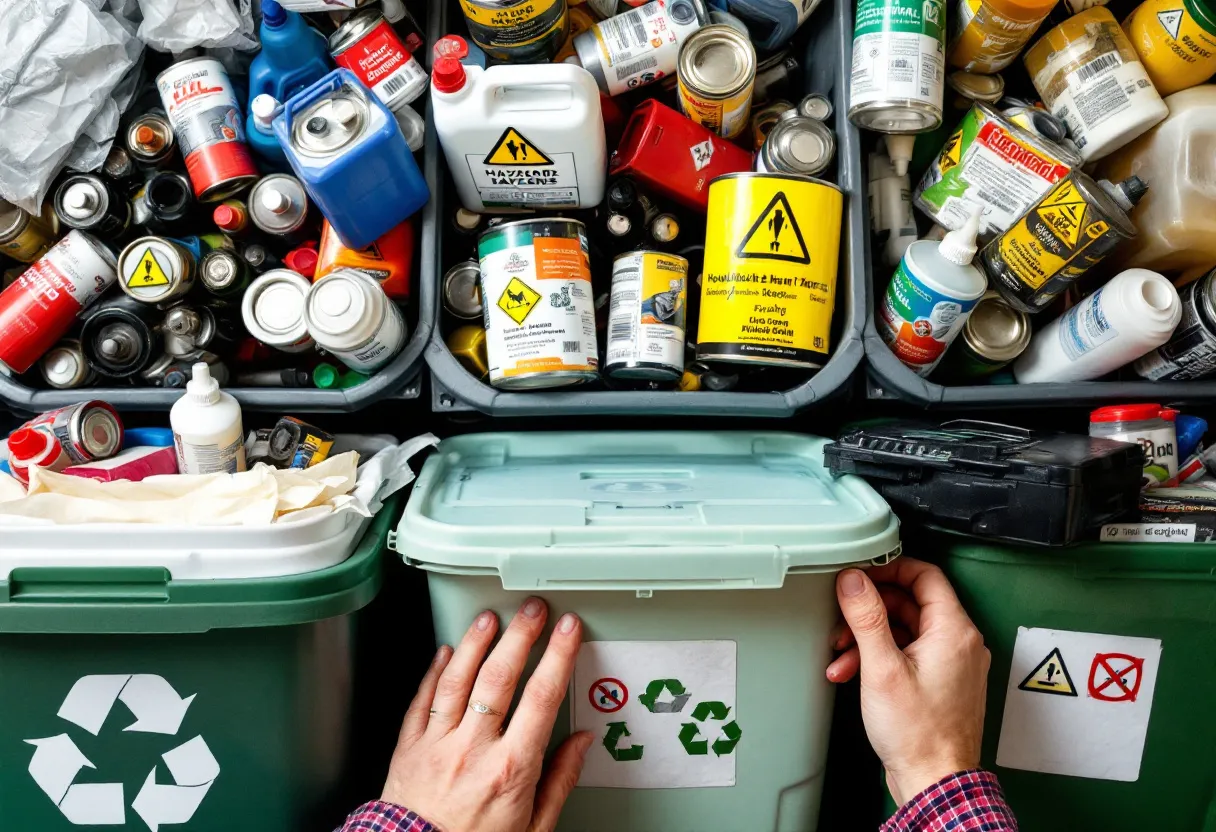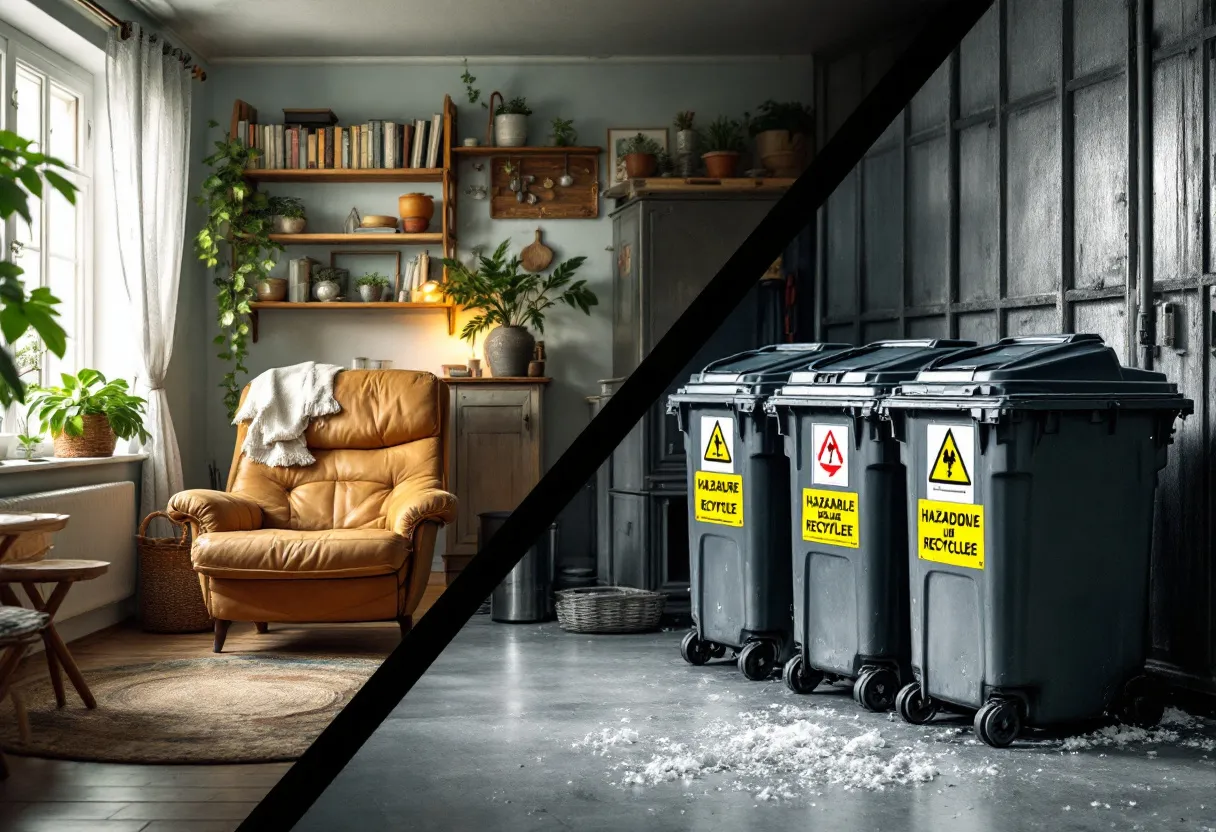Bonjour, mes amis! As a proud Lyonnaise and a scientist dedicated to preserving our beautiful France, I’m Lise Dubois. For years, I’ve worked with the CNRS and local communities, and I’ve seen firsthand the impact of improper waste disposal. Honestly, it’s not always pretty! But don’t worry, with a little knowledge, we can all make a difference. Let’s dive into navigating the often- murky waters of hazardous waste disposal in France, ensuring we protect our environment and comply with regulations. I’ll share some insights, clear up the confusion, and maybe even tell a story or two from my experience.
What Exactly is Hazardous Waste? Spotting the Culprits in Your Home
First things first, let’s define what we’re talking about. Hazardous waste in French, isn’t just industrial sludge. It’s often lurking in our homes disguised as everyday items. Think about it: old batteries, leftover paint, used motor oil, even some cleaning products. These seemingly innocuous items contain substances that can harm the environment and our health if not disposed of properly. The key is to recognize them.

Here’s a quick checklist:
- Batteries: All types, from AA to car batteries.
- Paints and Solvents: Leftover paint, varnish, turpentine, and paint thinners.
- Aerosols: Hairspray, insecticides, and spray paint cans.
- Cleaning Products: Bleach, drain cleaners, and oven cleaners.
- Automotive Products: Used motor oil, antifreeze, and brake fluid.
- Electronics: Old computers, phones, and appliances (WEEE – Waste Electrical and Electronic Equipment).
- Pesticides and Herbicides: Garden chemicals.
- Fluorescent Bulbs and CFLs: These contain mercury.
- Medications: Expired or unused prescription and over-the-counter drugs.
French Regulations: Navigating the Legal Landscape
France takes hazardous waste management seriously, and rightly so! We have a comprehensive legal framework, primarily based on the Environmental Code (*Code de l’environnement*) and various European Union directives. One key piece of legislation is the AGEC law, the Anti-Waste Law for a Circular Economy. This law aims to significantly reduce waste and promote a more sustainable economy. It impacts pretty much every company selling in France. I remember when the AGEC law came out, there was a lot of confusion! But it’s a good thing, pushing us towards a more circular model.
The regulations cover everything from the production and handling to the transport and disposal of hazardous waste. Here are some key points to keep in mind:
- Producer Responsibility: You, as the producer of the waste (even if it’s household waste), are responsible for its proper disposal.
- Separate Collection: Hazardous waste must be collected separately from general household waste.
- Traceability: The movement of hazardous waste is tracked to ensure it’s properly managed.
- Designated Disposal Facilities: Hazardous waste must be taken to approved collection points or recycling centers.
Practical Disposal Methods: Doing Your Part for the Planet
So, what can you actually do with that old can of paint or those dead batteries? Here’s a breakdown of the proper disposal methods:
Recycling Centers
It is your best friend when it comes to hazardous waste disposal. These centers are equipped to handle a wide range of hazardous materials. Find your nearest one and check their specific acceptance policies. Usually, there are designated containers for different types of waste, so make sure you sort correctly. My advice? Call ahead to confirm they accept what you’re planning to drop off. Trust me, it saves a wasted trip!
Special Collection Programs
Many municipalities organize special collection programs for hazardous waste. Keep an eye out for announcements in your local newsletter or on the town hall website. These programs often involve mobile collection units that visit different neighborhoods on specific days.
Retailer Take-Back Programs

Some retailers, particularly those selling electronics, batteries, and medications, are required to take back used products for proper disposal. Check with your local pharmacy for medication disposal programs, and inquire about take-back options when purchasing new electronics or batteries. For example, you can dispose of used batteries in most supermarkets, they usually have a special container for it.
What About Businesses?
Now, if you’re running a business, the rules are even stricter. You’ll need to keep detailed records of the hazardous waste you generate, use approved transporters, and ensure it’s treated or disposed of at authorized facilities. It’s crucial to comply with these regulations to avoid hefty fines and, more importantly, to protect the environment.
The Importance of Prevention: Reducing Hazardous Waste at the Source
Of course, the best way to manage hazardous waste is to reduce its generation in the first place. Here are a few tips:
- Buy Only What You Need: Avoid overbuying products that could end up as waste.
- Choose Eco-Friendly Alternatives: Opt for cleaning products and other household items that are less hazardous.
- Proper Storage: Store hazardous materials properly to prevent leaks and spills.
- Donate or Sell Unwanted Items: Give away or sell usable items instead of throwing them away.
A Collective Effort: Protecting France for Future Generations
Disposing of hazardous waste responsibly is not just a legal obligation; it’s a moral one. By taking a little extra care and following the guidelines, we can all contribute to protecting our environment and ensuring a healthy future for generations to come. I truly believe that every small action counts. Let’s work together to keep France beautiful and sustainable. Merci!
